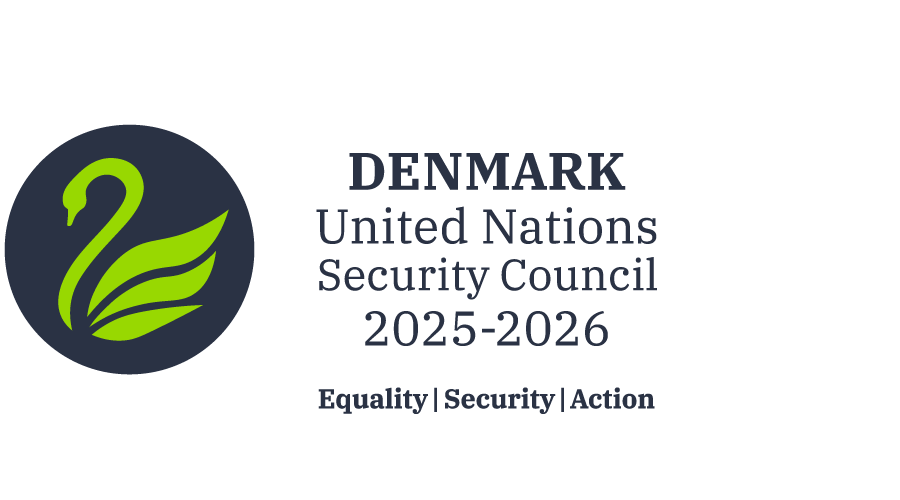Joint Nordic statement at the UNSC Open Debate on Capacity-building for sustaining peace in Africa
Mr.
President, Your Excellencies,
On behalf of the Nordic countries – Finland, Iceland, Norway, Sweden and my own
country Denmark – I want to thank China for convening this timely
meeting.
The need to explore ways to further strengthen conflict prevention measures,
and peacebuilding capacities across Africa have become ever more
pertinent. The Nordics are and will continue working to strengthen the
UN’s capacity to create cohesion, efficiency and accountability across
the humanitarian, development, and peace nexus – particularly through the
UN Peacebuilding Commission with its Peacebuilding Fund, and through
regional and sub-regional organizations. We recognize the Agenda 2030 also
in this context and underline the importance that its
implementation contributes to peacebuilding and sustaining peace in
countries in conflict and post-conflict situations.
In the context of conflict prevention and peacebuilding, regional and
sub-regional organizations are instrumental in developing context-specific
and tailor-made approaches. They are often the first to react in crisis
response and to engage with concerned parties to ensure protection of
civilians. They are uniquely placed to build trust and promote dialogue
among concerned parties; to offer support in mediation and reconciliation;
and they can be influential in advocating for the full, equal
and meaningful participation of women and youth in all aspects of peace
and security.
The Nordic countries will continue to strengthen our cooperation with regional
organizations, particularly the African Union. Our support focuses on
adequate training, capacity building and equipment, strengthening
African-led peace operations. In this vein, we are working to
ensure funding for African-led peace operations in support of African
solutions for crises on the African continent. We commend the progress on
the African Union Peace Fund, including the efforts made by AU Member
States to ensure predictable and sustainable financing. Regional organizations
can also play a critical role in supporting political transitions and
upholding democratic principles, as seen with ECOWAS’ commendable efforts
in the Sahel, which have played a crucial role for not only national but
also regional security and stabilization.
An integral part of capacity building for sustaining peace is strengthening the
capacity of judicial actors and law enforcement officials to ensure
accountability for conflict-related crimes, in particular conflict-related
sexual violence. Conflict-related sexual violence and gender-based violence
remain cruel tactics of war, terror, political repression and torture. The
fight against Sexual and Gender Based Violence must be at the centre of
our work to secure international peace and security. Ensuring access to
comprehensive services, including sexual and reproductive health, for
survivors of conflict-related sexual violence and fighting impunity for
perpetrators should be fundamental to any peace effort.
In line with the Women, Peace and Security agenda, we all need to further step
up our interaction with civil society and support for local women’s
organizations and women peacebuilders. We must establish partnerships with
women-led organizations that involve capacity building, and
their inclusion in the decision-making processes. Their contextual, local
expertise is crucial for the full implementation of the WPS agenda. At the
same time, we must not forget the criticality of including youth. We fully
support the implementation of the Youth, Peace and Security Agenda.
Engaging youth in conflict prevention, resolution and peacebuilding is
essential to building inclusive and lasting peace.
We recognize that conflict prevention and enduring peace cannot be sustained
without addressing the root causes of insecurity and conflict. To ensure
long-term sustainable peace, we must support economic and social
development, address poverty, inequality and climate change in line with the 2030
Agenda and the African Union Agenda 2063.
A comprehensive whole-of-system response by the UN in cooperation with
regional actors should work preventively to address the factors,
which cause and exacerbate conflict, including poverty, inequality, and
climate change - amongst others by promoting the rule of law, strong
democratic institutions and protection of human rights. This entails
working across the humanitarian-development-peace nexus to promote greater
cooperation, coherence, coordination and complementarity among
development, disaster risk reduction, humanitarian action and sustaining
peace.
We hope
that by further strengthening the cooperation between the UN and regional
partners, we can build a true culture of prevention whilst placing an
emphasis on bolstering regional peacebuilding capacities.
Thank you.
